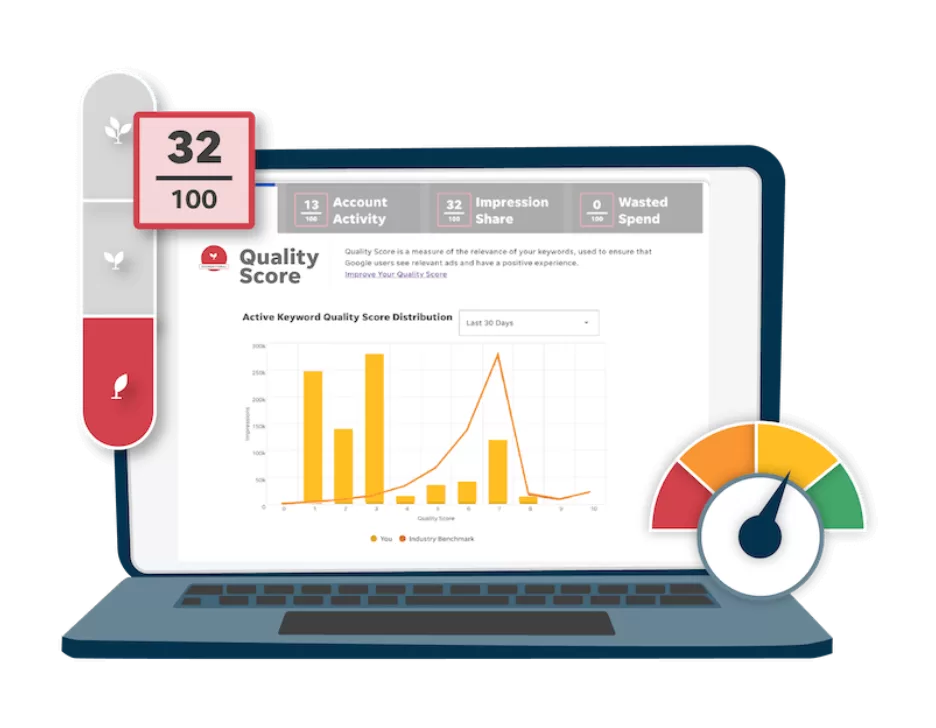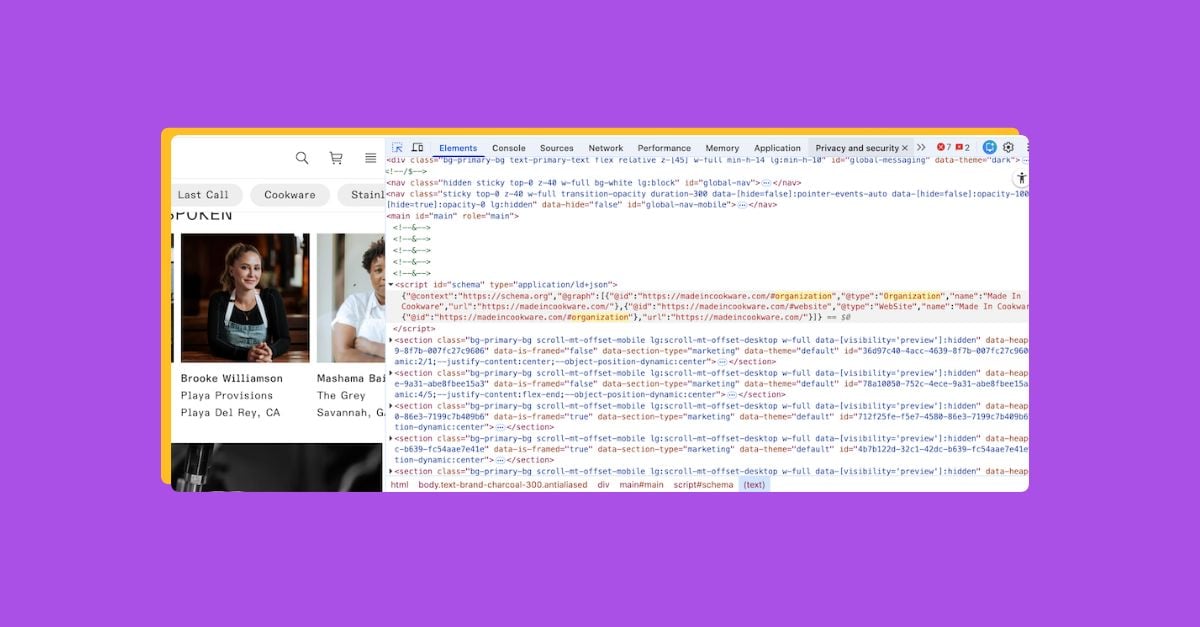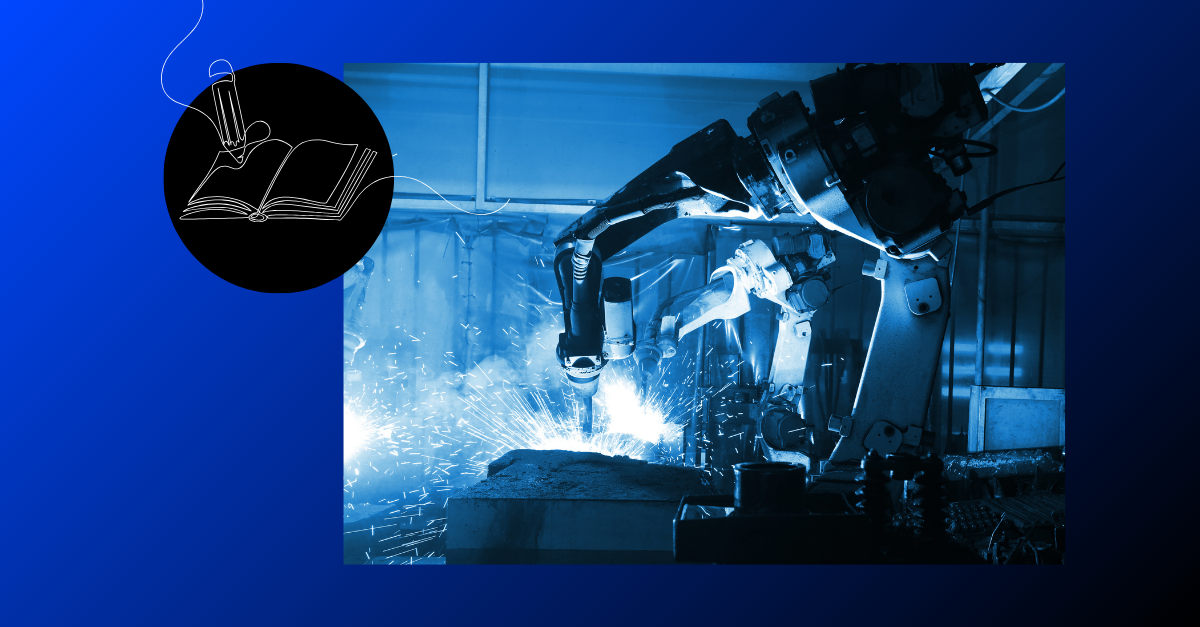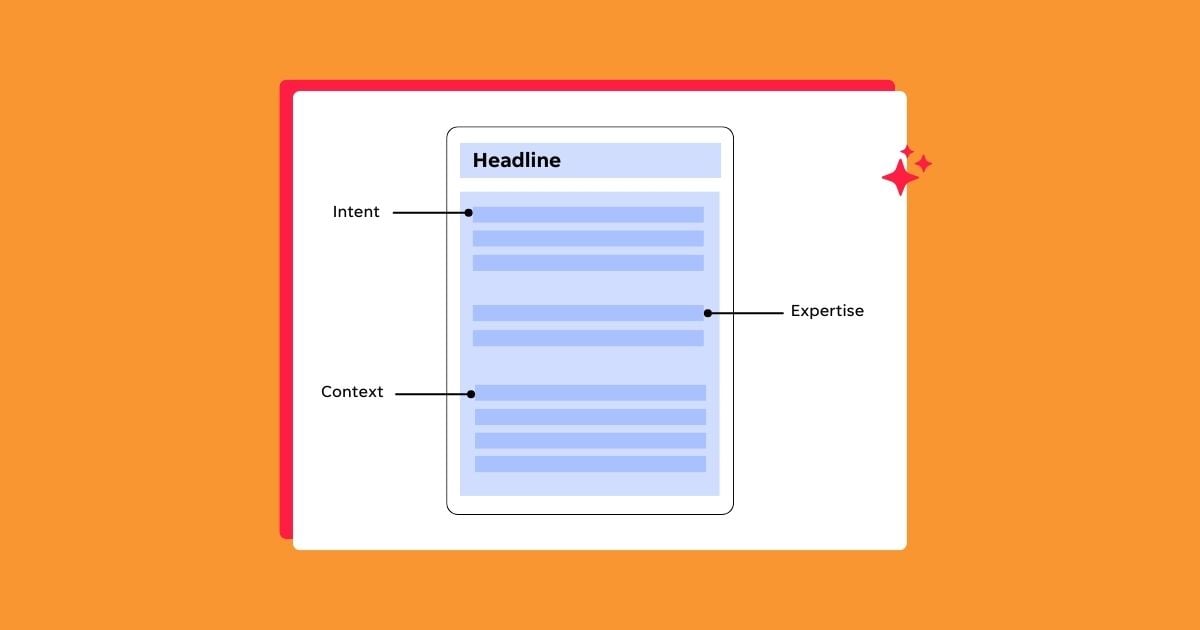✨ Quick overview
This article explains what Google AI Overviews are, how they work, how they’re changing search traffic, and what businesses can do to adapt their SEO strategy.
Key takeaways
- AI Overviews provide concise summaries from across the web, often above traditional organic results.
- They’re becoming more common and influential, which can reduce traditional organic search traffic.
- Content optimized for clarity, relevance, and authority is more likely to be used as a source in AI Overviews.
- Businesses should focus on clear answers, strong SEO fundamentals, and building authority signals so AI systems recognize and cite their content.
- Updating and structuring content to match user intent helps improve the chances of being included in these AI-generated summaries.
A lot of people in the search engine marketing space are talking about Google’s AI Overviews. These AI-generated search results taking up SERP real estate may have already impacted your organic traffic significantly. Even if they haven’t (yet), you probably have some questions—especially around what you can do to get found in AI Overviews and how to future-proof your strategy.
Today, we’ll look at everything you need to know about Google AI Overviews and share advice on how to optimize your content to get seen in AI Overviews.
Contents
- What are Google AI Overviews?
- How do AI Overviews work?
- How AI Overviews have evolved
- AI Overviews vs. AI Mode: What’s the difference?
- How AI Overviews are impacting search
- How to optimize for AI Overviews
What are Google AI Overviews?
Google AI Overviews (AIOs) are AI-generated answers to search queries that compile and combine results from across the web. They include text summaries of sources in a conversational tone, along with related sources, video content, and more. These blocks of AI-generated search results take up about half of the user’s screen when searching on desktop on Google and even more on mobile.
According to Google, these AI-powered search results are “designed to improve the search experience by acting as agents that can answer questions and organize results into a personalized feed.” Similar to the results you might get from ChatGPT, “Google AI Overviews use multi-step reasoning to break down searches into parts, answer each part, and then put the answers back together.”
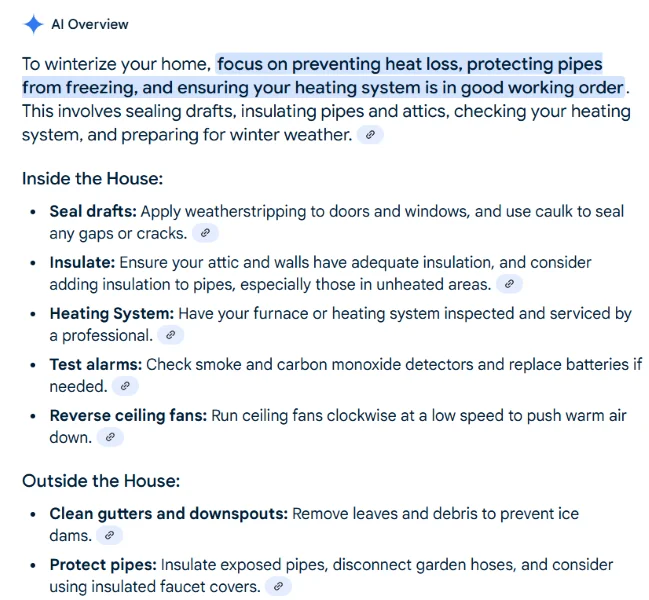
An example of what a Google AI Overview result looks like on the SERP.
Google compiles these results by sourcing information from across the web, as well as its own Knowledge Graph data.
AIOs show for about 55% of Google searches, and the number of SERPs that contain an AIO is expected to continue to climb.
🚨 Is your Google strategy being impacted by Google AI Overviews? Find out (and see how you can reoptimize) with a free, instant report from our Google Ads Grader!
How AI Overviews work
AI Overviews are triggered when a query fits as something Google’s AI model can answer using content from across the web. It then arranges that information at the top of the SERP where the searcher can expand the AIO to see even more information, click on any linked AIO content, or scroll past it to ads and organic results.
Like we mentioned earlier, AI Overviews are showing for more than half of all Google searches. Nearly 100% of the keywords that trigger AIOs are of informational intent, and keywords with an average CPC of $2-$5 tend to get an AIO most often. If a query has technical terminology, jargon, or industry-specific, complex terms, it’s 48% more likely to see an AIO result. The industry that recently saw the biggest increase in AIO presence on the SERPs was B2B technology. Insurance and Entertainment are two industries that are also seeing more and more AIOs.
How AI Overviews have evolved
After running an earlier version of AI Overviews (known as Search Generative Experience, or SGE) as an optional experiment for a year, Google announced it was launching the AIO feature more widely.
Since March 2025, AI Overviews have grown by 115%, and the presence of AIOs on SERPs is predicted to increase continuously. AI Overviews cover users in over 200 different countries and 40 languages, so it’s an extremely widespread feature at this point.
As the presence of AIOs has increased, Google continues to announce AIO enhancements regularly.
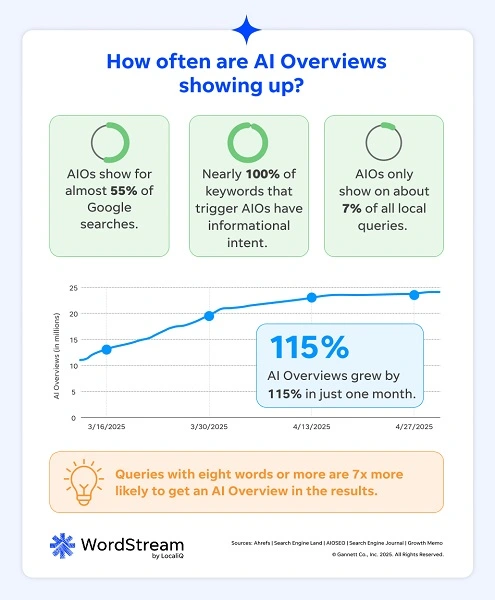
AI Overviews vs. AI Mode: What’s the difference?
While AI Overviews are powered by Google’s LLM AI model, Gemini, they still act as stagnant results on the SERP, similar to your standard paid or organic results. AI Mode, however, brings Gemini’s chat experience into the SERP.
When you click on the AI Mode icon, you’re able to fully chat with Gemini about your query. So, AI Overviews happen automatically, but users can opt into interacting with AI Mode to do further conversational-style exploration of the topic they’re searching for.
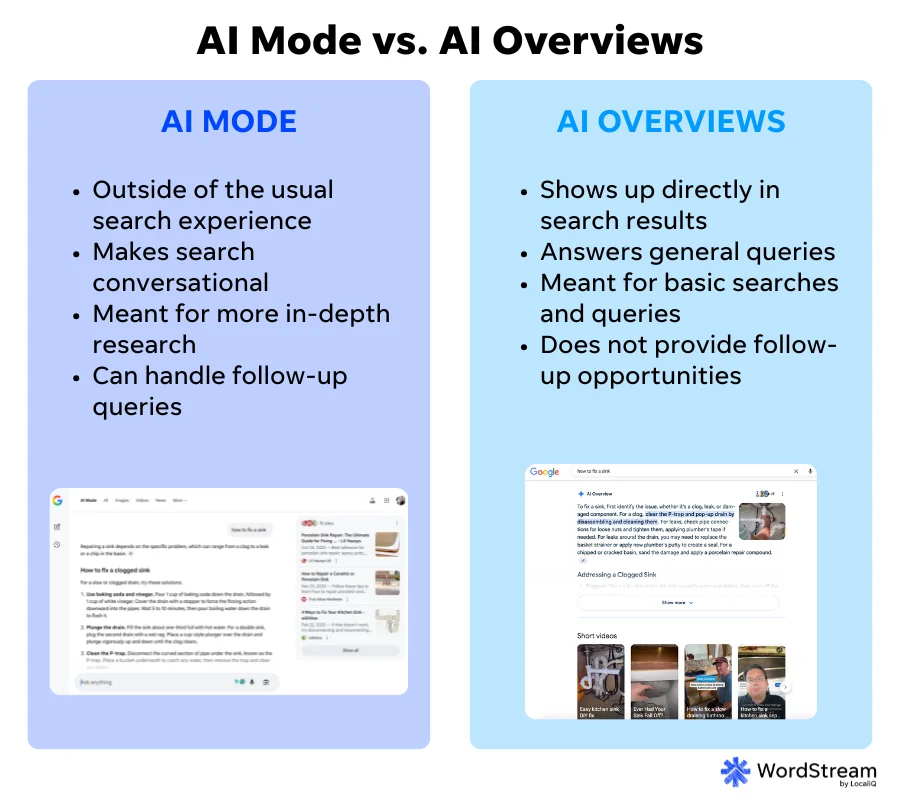
How AI Overviews are impacting search
Check out these three ways Google’s AI Overviews are changing the search game.
1. AIOs might make small business content marketing more challenging
A study showed these AIO impacts:
- AI Overviews take up 42% of the screen on desktop, 48% on mobile.
- 75% of AI Overviews also rank in the top 12 in search results.
- AIOs showed up on ~60% of informational and ~20% of commercial queries studied.
- AI Overviews have been found to reduce clicks by nearly 35%.
- AIOs have decreased CTRs by about 7% for top-ranking sites.
- Some sites have seen a 20-40% decrease in search traffic since the introduction of AI Overviews.
What are the takeaways there?
AI Overviews (and now AI Mode) are impacting a lot of searches.
A change this massive completely throws off many of the best practices search marketers and advertisers have come to rely on for years. According to Elisa Gabbert, Director of Content and SEO at WordStream by LocaliQ, this is going to make content marketing much, much harder for all businesses, but smaller businesses in particular.
“The SERP has been getting more competitive and challenging for years, forcing businesses to increase their ad budgets to get people to their sites,” Elisa said. “But AI Overviews reduce clicks to organic links even more dramatically than ad-heavy SERPs did. I’ve seen SERPs where the full screen above the fold was dominated by ads, followed by a full screen of an AI Overview, before you even get to the rest of the results.”
2. Results from top-ranking sites may no longer be as prominent
As some studies have noted, the sites that Google sources for AI Overviews aren’t necessarily the same sites that earned strong organic rankings over the years. In some cases, those sources weren’t even ranking in the top 100 results, but they’re now at the top of the page.
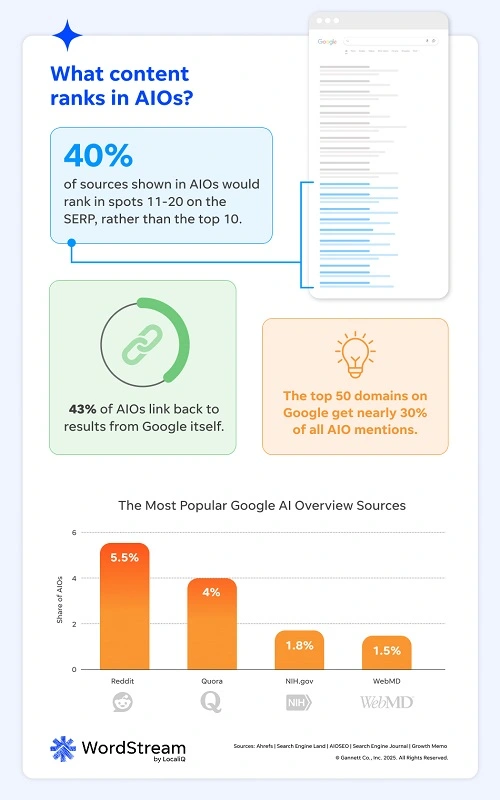
3. AIO results may not always be reliable or accurate
We know that Google has made the world harder for businesses, but that’s not the only issue here. There have been serious problems with the quality of the AI results from a user standpoint, as well.
Google itself acknowledges that the generative AI used in AI Overviews is “experimental and info quality may vary.” However, most businesses have found that to be putting it lightly. The “AI” (really machine learning) in AI Overviews obviously can’t read through the context of a search query like a real person would. However, some generated search responses are full of problems and potentially dangerous inaccuracies. For example, Google’s AI doesn’t seem to understand jokes or sarcasm from the sources it pulls, and it’s also been found to cite outdated (or even dead) URLs.
We even tested AI Overviews ourselves in the context of PPC and found AIOs to be wrong about 26% of the time, which makes them the least accurate generative AI tool when it comes to sourcing marketing and advertising information.
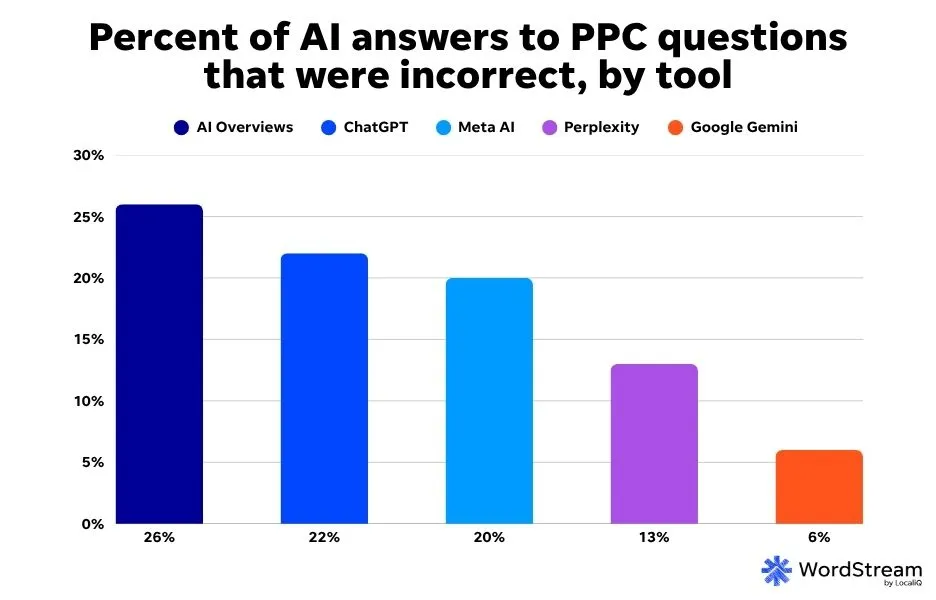
How to optimize for AI Overviews: 4 tips
Here are four key tips for optimizing your SEO strategy so that your business shows in AIOs.
1. Stick to SEO basics
Many of the strategies to get seen in AI Overviews align with the basic principles of SEO. Here are things you can do that impact SEO that also impact AI Overviews.
- Build links at the domain and page level for key pages and your site as a whole.
- Create clear, concise answers to the core question your page addresses (just like when you were targeting featured snippets previously).
- Create clickable title tags.
- Deliver on the promise of your title tag, getting searchers to quick answers and creating a great user experience that keeps visitors from bouncing back to search results for different answers.
- Build your brand so that your site is mentioned frequently across lists, review sites, etc., so that you’re featured prominently amongst businesses in your category.
Building your brand and getting listed on top directories can help you get found organically on search engines.
These are all things that will impact AI Overviews and rankings in other AI products like ChatGPT, DeepSeek, and Claude, and will help you rank higher in traditional organic results, whether there’s an AI Overview or not (and again: most of the time, higher ranking sites see a higher likelihood of showing up in AI Overviews).
A lot of the work of getting featured in AI Overviews is to do the things you already knew you should be doing to rank in Google search results: Target relevant terms, build links to your domain and individual pages, write clickable title tags, and create a great user experience on your site so that your engagement metrics are strong.
2. Know your audience
Another key aspect of AIOs to note is that they change based on the user’s history and location, as well as engagement with an AIO by users generally. So, like with all search engine rankings, you need to take into account that results will be personalized and dependent on user interaction with the AIO itself. A bit of audience research can help you tailor your content to the types of AIOs your ideal customers are most likely to get.
3. Update your content with AIO placements in mind
Beyond existing SEO best practices, there are some areas you can focus on when it comes to AIO placement:
- Verification and embedding distance. If you’re targeting something like a definition for a term (e.g., what is X), having your definition of the term match the AIO with slightly different but highly similar “close” language helps increase the likelihood of being sourced in the AIO links.
- Updating content and timestamps. Freshness is among the factors relevant patents from Google considers when it comes to AIOs.
- Knowledge graph inclusion. This is one of the sources the LLM powering Google’s AIO results pulls from (along with its index).
- Related topics. AIOs will change over time based on how an individual user or users generally refine their query, so having related topics is important.
4. Focus on content types known to frequent AIOs
It’s been found that AIOs are favoring certain types of content, such as:
- Interactive tools and calculators. AI favors content that helps users take action. Interactive tools and calculators let people participate instead of passively reading. This type of content provides something AI summaries cannot: instant, personalized results. You want to build easily accessible tools that solve one real problem, such as a savings calculator or cost estimator.
- Data visualization and original research. AI can rephrase existing information, but it cannot create new data. Publishing proprietary research gives you credibility and longevity. Once AI models recognize your content as a data source, they continue to draw from it in future responses.
- Video content. AI Overviews frequently surface short, high-quality videos that directly answer user questions. It satisfies intent faster, builds trust, and is far more difficult to summarize than written content, so it’s more likely to be favored by AI-generated results.
Again, a lot of these are things you’re likely doing already as part of your typical SEO process.
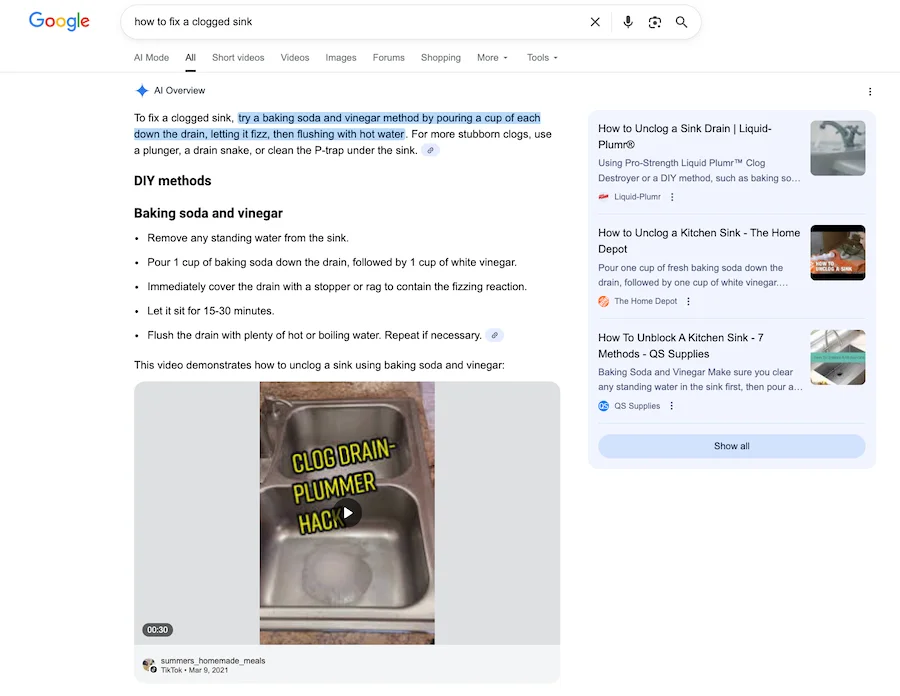
Google AI Overviews: What to do next
We know that Google AI Overviews will continue to adapt to Google’s ever-changing needs, so it’s key to be a step ahead of the game by optimizing your content for AIOs as much as you can.
While we can’t escape AI Overviews anytime soon, we can be thinking of ways to work around it to still see results—whether that be through different strategies or different channels. If you have more questions or want help with your SEO during these tumultuous times on the SERP, see how our solutions can help you maximize your business’s search marketing for sustainable growth.

